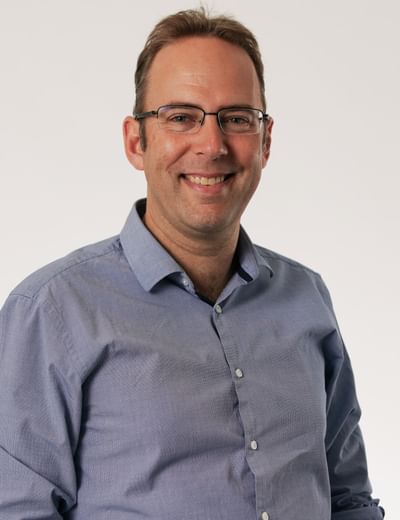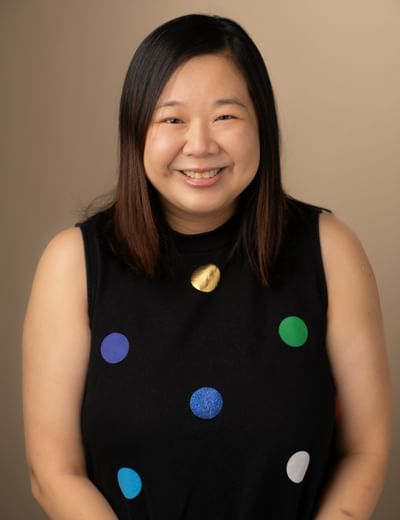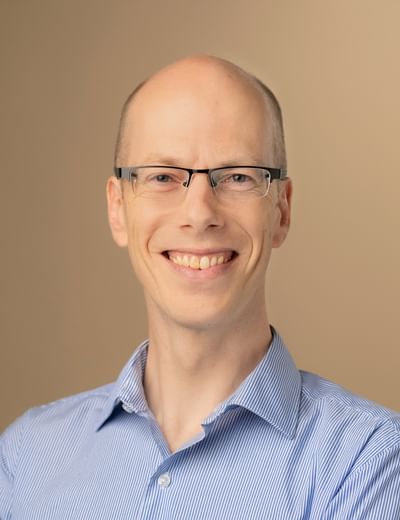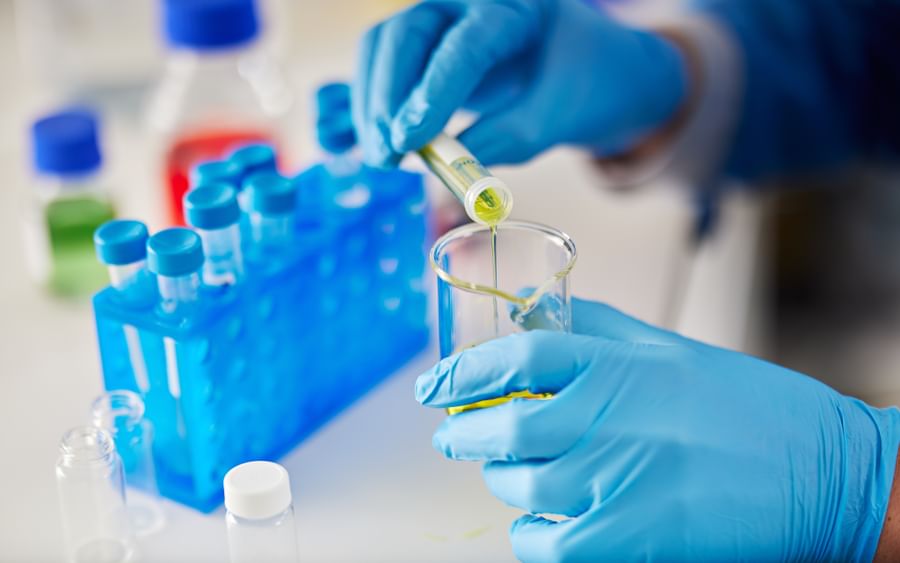Cancer Council SA’s Research Program invests in groundbreaking cancer research projects happening here in South Australia that have just missed out on funding from the National Health and Medical Research Council (NHMRC) Ideas Grant.
Meet our 2025 cancer research project grant recipients
Cancer Council SA’s new research grants will support three of South Australia’s best and brightest cancer researchers to understand how we can better treat cancer and improve outcomes for people impacted by cancer.

Dr Daniel Thomas
Groundbreaking targeted immunotherapy treatment for chronic myelomonocytic leukaemia
Dr Daniel Thomas from The University of Adelaide is testing a groundbreaking new treatment for older adults with a type of blood cancer called chronic myelomonocytic leukaemia.
Dr Thomas is a clinical haematologist at the Royal Adelaide Hospital and Stanford-trained physician scientist who currently leads the Blood Cancer Program, Precision Medicine Theme at the South Australian Health and Medical Research Institute. He also has an ongoing appointment at Stanford Stem Cell & Regenerative Medicine Institute as a visiting scholar. His track record consists of over 60 peer reviewed papers in high impact, three patent applications and $14 million in competitive grants awarded in the last four years.
Dr Thomas’s Cancer Council SA funded research focuses on a new antibody treatment for chronic myelomonocytic leukaemia in older adults which is now in phase 2 clinical trials and this funding will help us understand if this groundbreaking new treatment can be used for other similar cancers, including a blood cancer in children that has no known treatment.

Dr Winnie Kan
Predicting and preventing relapse in patients with acute myeloid leukaemia
Dr Winnie Kan from the University of South Australia is looking for new treatments to prevent relapse in people with acute myeloid leukaemia and ultimately, save lives.
Dr Kan is a senior research officer with a strong focus on cytokine biology and signalling in blood cancers. Upon completion of her PhD in Hong Kong where she studied targeting of cell cycle regulatory mechanisms in solid tumours, she undertook her postdoctoral studies in Adelaide. She now runs a research program at the Cytokine Receptor Lab at the Centre for Cancer Biology in Adelaide, where she studies how certain signalling proteins (called cytokines) influence how blood cells develop and what types of cells they become.
Dr Kan’s Cancer Council SA funded research focuses specifically on acute myeloid leukemia (AML) – a serious and deadly blood cancer which has poor survival rates due to its frequent relapse after treatment. Currently, we can't reliably predict when or if a patient will relapse, and there are no treatments that can fully prevent it. This is largely because we still don't fully understand what causes AML to return.
Recently, Dr Kan’s team discovered that the stem cells responsible for starting and re-starting AML use a special version of a growth factor receptor. This receptor helps these cells keep multiplying and driving the disease. They believe that this unique receptor triggers specific signals and gene activity that lead to relapse.
Dr Kan’s research now hopes to study this receptor in samples from AML patients to develop a new way to detect AML early and predict if a patient is likely to relapse, and find new treatments to specifically target and eliminate these cells to prevent AML from coming back.

Associate Professor Pascal Duijf
A new strategy to improve brain cancer treatment
Associate Professor Pascal Duijf from the University of South Australia aims to develop a completely new way to treat cancer, by targeting large genetic defects in cancer cells.
Dr Duijf is an Associate Professor in Cancer Pharmacogenomics at the Centre for Cancer Biology, University of South Australia and SA Pathology in Adelaide. Dr Duijf holds a PhD degree in Human Genetics and trained in Cancer Cell Biology at Memorial Sloan-Kettering Cancer Center in New York. From 2013-2023, he led an independent Research Group at The University of Queensland and Queensland University of Technology. In 2023, he relocated to Adelaide to establish and lead the Cancer Pharmacogenomics Laboratory.
Currently, cancers are treated with 'targeted' therapies: drugs that target small genetic defects in the cancer cells' DNA and thereby kill tumour cells. However, these therapies often fail. Large genetic defects are more abundant, larger, easier to target, and current data predicts much more effective. Yet, therapies that target them do not exist for any cancer.
Using cutting-edge, patient-derived tools, Dr Duijf’s team will first develop this therapy for brain cancer. Importantly however, large genetic defects occur in 90 per cent of all cancers. Which means, if successful, this new approach could ultimately help millions of people with cancer around the world.
Project grant opportunities in 2026
Cancer Council SA’s project grant supplementary funding is available to National Health and Medical Research Council Ideas Grant applicants that have just missed out on funding and are:
- based on any aspect of cancer including its causes, mechanisms, prevention, treatment and care, and the organisation and performance of cancer control services
- one year in duration
- have an adjusted 12-month timeline and budget up to a value of $100,000
- based in South Australia.
How to apply for a Cancer Council SA’s project grants
Applications for Cancer Council SA and Cancer Council NSW funding are aligned with the National Health and Medical Research Council’s Ideas Grants submission and review processes.
Researchers wishing to apply to the Cancer Council SA Research Program must complete:
- National Health and Medical Research Council’s Ideas Grant application – in the Sapphire application, applicants to select ‘Cancer Council’ as a funding option.
- Supplementary questions via the online grant submission form.
If you have any questions about these project grants, please contact Cancer Council SA Research at grants@cancersa.org.au.
Get in touch
For more information about Cancer Council SA’s project grants, get in touch with Cancer Council SA at grants@cancersa.org.au.
